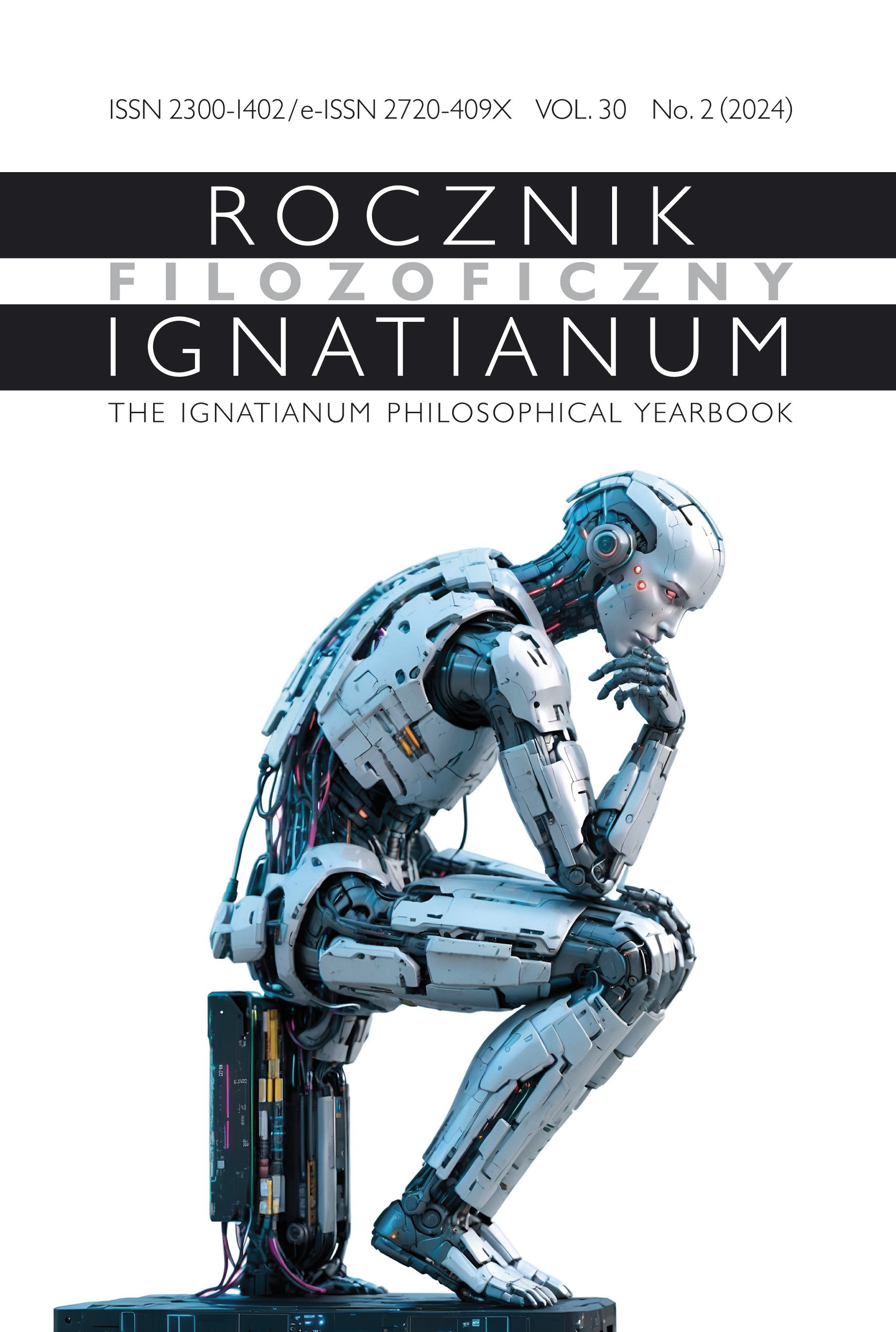Posthumanizm czy plushumanizm
Abstract
Artykuł ma na celu porównanie dwóch współczesnych nurtów postrzegania człowieka. Posthumanizm, oparty na zasadach naturalnych i biologicznych, rozumie człowieka jako projekt podległy nieustannym zmianom. Usiłuje nakreślić perspektywy jego rozwoju poprzez działania techniczne i biotechnologiczne. Zasadniczymi postulatami tego nurtu są: wydłużanie życia biologicznego, poprawa zdrowia oraz samopoczucia, fuzja ludzkiego mózgu ze sztuczną inteligencją oraz przeniesienie ludzkiej świadomości na niebiologiczny nośnik w celu uczynienia jej nieśmiertelną. Plushumanizm, oparty na personalistycznej koncepcji osoby ludzkiej oraz przesłankach nadprzyrodzonych, formułuje odpowiedź na postulaty posthumanistyczne, ukazując człowieka jako byt ontologiczny, jedność psychofizyczną, cechującą się niezmienną naturą duchową oraz dziecko Boże. Człowiek powołany jest do pełni swego rozwoju nie tylko na płaszczyźnie naturalnej, lecz także nadprzyrodzonej. Możliwe jest osiągnięcie przez wszystkich ludzi swej pełni oraz nieśmiertelności na podstawie historycznego faktu zmartwychwstania Chrystusa oraz prawd zawartych w Piśmie Świętym. Ostatecznym przeznaczeniem człowieka jest nieśmiertelność oraz pełnia szczęścia w królestwie niebieskim, do którego nie wchodzi on jako anima separata, lecz jedność duszy z ciałem uwielbionym (soma pneumatikon). O wzroście jego człowieczeństwa nie decyduje genetyczne czy farmakologiczne wzmocnienie, lecz duchowe bogactwo, przejawiające się w miłości i postawie podarowania siebie drugim.
Literaturhinweise
Kurzweil Raymond, Humanité 2.0 : La Bible du changement (Paris: Éd. M21, 2007).
Larchet Jean-Claude, Terapia chorób duchowych, tłum. Nikołaja Aleksiejuk (Hajnówka: Bratczyk, 2013).
Michea Jean-Claude, La double pensée: Retour sur la question liberale (Paris: Champs Pensée, 2008).
Seewald Peter, Światłość świata. Papież, Kościół i znaki czasów, tłum. Piotr Napiwodzki (Kraków: Znak, 2011).
Truong Jean-Michel, Totalement inhumaine (Paris: Éd. du Seuil, 2001). Xerri Jean-Guilhem., À quoi sert un chrétien (Paris: Éd. du Cerf, 2014).
Alexandre Laurent, „Google veut stopper le vieillissement”, Le Figaro Magazine, 13.01.2014.
Benoît Georges, „Singularity University. Les adorateurs du futur”, Les Échos, 22.11.2013.
List otwarty do Sekretarza Generalnego ONZ z 11 marca 2013 r., http://2045. com/articles/31277.html (dostęp: 23.12.2022).
The Project of the Earth Charter, https://earthcharter.org/read-the-earth-charter/?doing_wp_cron=1671466985.1212599277496337890625 (dostęp: 19.12.2022).
Transhumanist Declaration, https://hpluspedia.org/wiki/Transhumanist_Declaration (dostęp: 23.12.2022).
Copyright (c) 2024 Uniwersytet Ignatianum w Krakowie

Dieses Werk steht unter der Lizenz Creative Commons Namensnennung 4.0 International.
Rocznik przyjmuje do druku wyłącznie materiały, które nie wchodzą w żaden konflikt interesów, żaden konflikt z prawem autorskim itp. Redakcja prowadzi działania przeciw: plagiatom, ghostwriting1, guest/honorary authorship2 itp. Autor pracy zbiorowej, który jest pierwszy na liście, bierze na siebie odpowiedzialność i ma obowiązek przedstawić wkład wszystkich współautorów. Jeśli publikacja powstała dzięki dedykowanym środkom finansowym, należy ujawnić to np. w Podziękowaniu, przypisie itp. Ew. przedruki wymagają jawnego zgłoszenia i okazania odpowiedniego pozwolenia wydawniczego. Autorzy / Recenzenci nierzetelni narażają się na reakcję właściwą stosownym instytucjom.
______
1 Ma to miejsce, gdy osoba mająca istotny wkład jest pominięta na liście Autorów czy w Podziękowaniu.
2 Zachodzi, gdy na liście autorskiej pojawia się osoba mająca znikomy/żaden udział w pracy.





